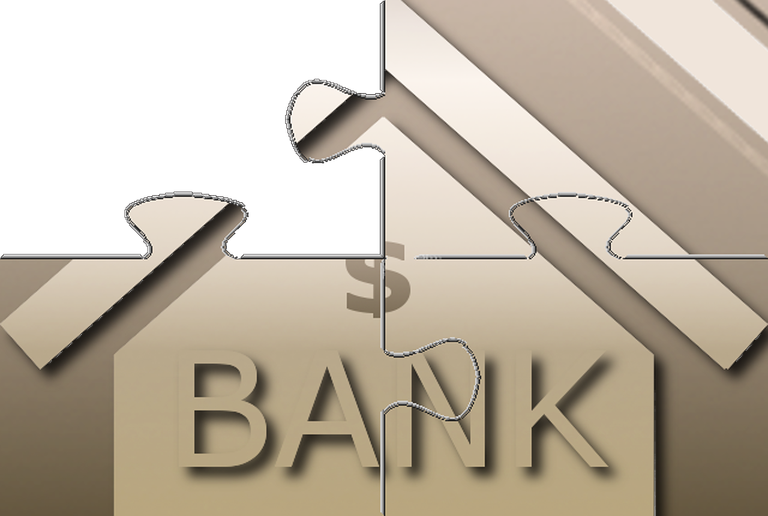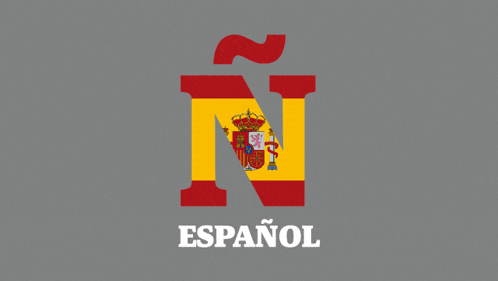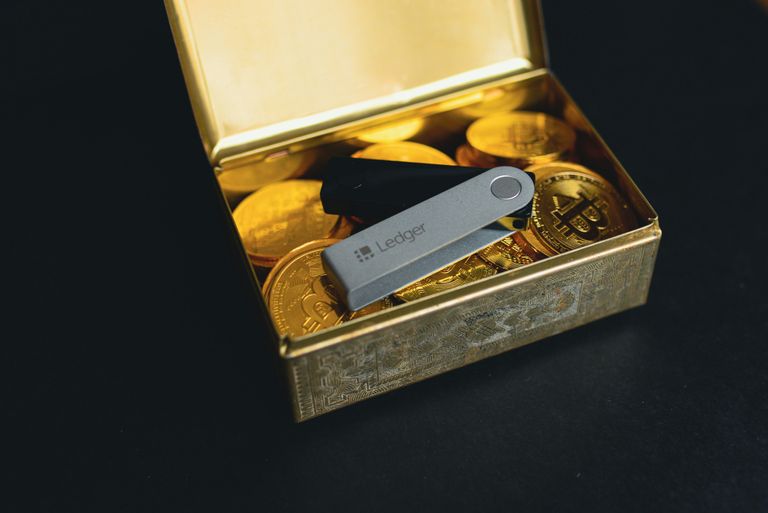
Fuente/Source


Es hora de encender las velas de mi espacio virtual...
Hoy fui con mis tres hijos al banco para realizar algunos trámites necesarios. Pude haberlos dejado en casa incluso por el frío de la estación en la ciudad porque el termómetro marca temperaturas bajo cero...
Es innegable el frío que hace, sin embargo, cuando tengo días libres trato de disfrutar de los niños lo que más pueda porque, tal cual dice mi esposa: "un día no muy lejano porque el tiempo se va en menos de un pestañear, ellos se irán y si la voluntad del Creador lo permite, llegará el día en que nos quedaremos solo los dos, como empezamos".
A veces me faltan las manos y los ojos que tiene mi esposa para poder estar a cargo, al mismo tiempo, de los dos niños y la niña que tenemos, pero en esta ocasión fue fácil y hasta divertido porque, aparte de estar sanos los tres, mi hijo mayor me ayudó mucho empujando el coche en el que iba su hermana menor porque ella no cumple todavía ni los tres años de edad, entretanto yo cargaba a mi hijo intermedio en el canguro especial, el cual, me facilita su traslado debido al pie equinovaro que tiene y que está en proceso de corrección y restablecimiento para que pueda caminar sin problemas en el futuro.
Cuando salimos del banco, los llevé en el auto a pasear por la ciudad y nos metimos a un centro comercial para buscar unas velas que necesitamos para la fiesta de Jánuca que está prácticamente a la vuelta de la esquina... como siempre, no pueden faltar las golosinas secretas en nuestras salidas, aquellos pecadillos ocultos de los ojos de mi esposa todas las veces que un "niño grande" con tres pequeños salen sin vigilancia alguna, pero que sí suelen actuar con responsabilidad.
En el sitio en donde nos sentamos un rato a degustar las golosinas que compramos, mi hijo mayor me preguntó cuándo él podrá tener una cuenta bancaria como la que manejo yo si él ya tiene cuentas controladas y vigiladas en los exchanges en donde, o su madre o yo, le enseñamos algunos parámetros de las criptomonedas y depositamos dinero para que aprenda a administrar los valores que recibe no solo por parte de nosotros como padres, sino los que se gana a través de operaciones y el que sus abuelos o sus tíos le depositan.
Los bancos: odiados por unos, defendidos por otros, utilizados por todos sin importar, en primera instancia, la cantidad que se refleje en la cuenta personal...

Fuente
La historia de los bancos no es solo una crónica de números y transacciones; es un reflejo de cómo las sociedades se han organizado para manejar la riqueza, el poder y la necesidad de progreso. Sus ciclos de auge y caída nos recuerdan que, aunque esenciales, estas instituciones también son imperfectas y están moldeadas por las decisiones humanas, con todo lo que ello implica porque los bancos han estado presentes desde los albores de la civilización, evolucionando junto con las necesidades humanas de intercambio, comercio y organización económica.
En las antiguas civilizaciones de Mesopotamia, los templos funcionaban como centros financieros donde se almacenaban granos y metales preciosos, ofreciendo una rudimentaria forma de préstamo. Los egipcios, los griegos y los romanos desarrollaron sistemas más complejos, impulsados por el comercio marítimo y la expansión de sus imperios. Cada transacción era un reflejo de la confianza y la necesidad de establecer reglas que garantizaran el cumplimiento de los acuerdos.
Con el tiempo, los sistemas bancarios se diversificaron. En la Italia renacentista, las familias como los Medici sentaron las bases de la banca moderna, creando un sistema que incluía la contabilidad por partida doble y una red internacional de oficinas. Este modelo no solo facilitaba el comercio entre ciudades-estado, sino que también introducía una idea crucial: la intermediación financiera como motor de desarrollo económico. A medida que los imperios europeos expandían sus dominios, las instituciones bancarias se convertían en pilares para financiar exploraciones y guerras.

Fuente
El surgimiento de los bancos centrales fue otro hito crucial porque durante el siglo XVII, instituciones como el Banco de Inglaterra fueron creadas para estabilizar monedas y gestionar la deuda pública, marcando el inicio de una relación estrecha entre las finanzas y los gobiernos. Este vínculo, aunque poderoso, trajo consigo retos. Las crisis económicas comenzaron a mostrar los peligros de un sistema financiero interconectado, donde los errores o excesos de unos pocos podían repercutir en millones de personas.
En los siglos XIX y XX, los bancos se convirtieron en símbolos del progreso y, al mismo tiempo, de desigualdad, en donde la industrialización y las guerras mundiales ampliaron su alcance, consolidando a estas instituciones como herramientas fundamentales para la reconstrucción económica y la expansión global. Sin embargo, también se les acusó de alimentar las desigualdades y de priorizar los intereses de unos pocos sobre las necesidades colectivas.
Hoy en día, el sistema bancario enfrenta una transformación sin precedentes debido a la digitalización y las criptomonedas que desafían los modelos tradicionales, mientras que los bancos deben lidiar con nuevas demandas sociales, como la sostenibilidad y la inclusión financiera, por eso es que estas instituciones están obligadas a reinventarse, buscando un equilibrio entre la innovación, la regulación y la confianza pública porque, aunque como humanos ya no guardamos el dinero bajo el colchón, otro tipo de lo que representa un banco digital no solo se halla en los exchanges, sino en aparatos como el ledger nano...

Fuente
Tener ahorros en un banco no es solo una práctica financiera, es un acto de previsión y seguridad. Es reconocer que el futuro, con sus incertidumbres y posibilidades, puede manejarse mejor cuando hay un respaldo. Los ahorros son una promesa silenciosa de estabilidad, una garantía de que, ante los imprevistos, habrá un margen de maniobra.
El banco, más allá de ser una institución fría y llena de números, se convierte en un aliado discreto que cuida esos esfuerzos acumulados con paciencia. Depositar dinero en una cuenta es como sembrar una semilla en tierra fértil: no siempre ves cómo crece, pero sabes que está ahí, preparándose para ofrecer algo valioso cuando lo necesites. Los intereses, aunque a veces modestos, son un recordatorio de que el tiempo puede jugar a tu favor si aprendes a esperar.
Ahorrar no se trata solo de cubrir emergencias, sino también la llave para alcanzar metas que, de otra manera, podrían parecer lejanas, como es el caso de un viaje, una casa, la educación personal o de un hijo, o incluso un proyecto personal que espera ver la luz. Tener ahorros es tener opciones, y las opciones brindan libertad.
Los imprevistos están a la orden del día, por eso el ahorro a manera de staking es una forma de recuperar el control. Es saber que, aunque las cosas no salgan como esperabas, tienes un plan B, pero también es una lección de autocontrol, de aprender a priorizar lo que importa hoy para garantizar lo que necesitarás mañana. Cada sacrificio, por pequeño que sea, construye algo más grande, algo que da paz.
Por supuesto, los bancos no son perfectos, ni los defiendo porque sea banquero o tenga amigos del medio, en donde las políticas y condiciones pueden no ser las ideales para todos, y hay que estar atentos, leer entre líneas, comparar y elegir lo que más se alinee con nuestras necesidades, sin embargo, más allá de los "términos y condiciones", los bancos ofrecen una estructura que difícilmente podríamos replicar solos: seguridad física para nuestros recursos, facilidad de acceso y la posibilidad de hacer crecer ese dinero de formas que no siempre son evidentes.
Ahorrar en un banco, sea digital o físico, es más que un hábito financiero porque se trata de un acto de cuidado hacia uno mismo y hacia quienes dependen de nosotros, ya que es un puente seguro entre el presente y el futuro, una herramienta que nos recuerda que, aunque no podemos controlar todo, sí podemos prepararnos mejor.
Ahora...
Cuando dejamos nuestro dinero en un banco depositamos más que billetes porque confiamos en que esa institución protegerá algo que representa nuestro esfuerzo, nuestros sueños y, a veces, nuestras esperanzas. Esa confianza otorga a los bancos una responsabilidad inmensa, un pacto implícito entre la entidad financiera y sus clientes, ya que tienen el deber de garantizar la seguridad de esos recursos, pero también de manejarlos de manera ética y transparente, velando por los intereses de quienes los eligieron como guardianes de su patrimonio.
Pero la relación entre los bancos y sus clientes no siempre es tan equilibrada como debería ser. Los bancos, en su esencia, no solo resguardan dinero, sino que lo usan para generar ganancias propias, prestan ese dinero a otros, invierten en mercados, asumen riesgos que no siempre están a la vista de quienes les confiaron sus ahorros... esta dinámica, aunque necesaria para que el sistema funcione, a veces deja una sensación de vulnerabilidad. ¿Qué ocurre si una mala gestión o decisiones especulativas los ponen en peligro? Las historias de quiebras bancarias y crisis financieras nos recuerdan que, aunque depositamos en ellos nuestra confianza, no siempre están exentos de errores, así que no se debe colocar todos los huevos en la misma cubeta...

Fuente
También está la cuestión de los costos asociados porque tener dinero en un banco puede implicar tarifas y comisiones que, en ocasiones, parecen desproporcionadas. Mantener una cuenta puede convertirse en un gasto adicional y los intereses que ganan los ahorros suelen ser modestos, muchas veces incapaces de superar la inflación. Esto puede generar frustración: depositas tu dinero, ellos lo usan para generar mayores ingresos, pero tú recibes un beneficio que parece insuficiente, o sea, como ejemplo: por cada 1000 euros, te dan tres céntimos (exagerando).
A esto se suma la rigidez que algunas instituciones bancarias imponen a sus clientes debido a los trámites burocráticos, horarios limitados, falta de atención personalizada y, en algunos casos, políticas poco claras que dificultan el acceso a los propios recursos, aunque la digitalización ha simplificado muchos procesos, también ha expuesto a los usuarios a nuevos riesgos, como fraudes electrónicos y pérdida de privacidad.
Los bancos tienen una gran responsabilidad no solo con quienes confían en ellos, sino con la sociedad en su conjunto. Tienen el poder de promover un desarrollo económico equilibrado, fomentar la inclusión financiera y operar con una visión a largo plazo que beneficie a todos, pero también enfrentan la tentación de priorizar el beneficio propio, incluso a costa de quienes los sostienen. Por eso, como usuarios, es importante mantenernos informados, exigir transparencia y buscar alternativas si sentimos que nuestros intereses no están siendo respetados.
Depositar dinero en un banco es una elección que ofrece ventajas, aunque como es obvio, también implica riesgos... entender ambos lados de la moneda nos permite tomar decisiones más conscientes, protegiendo no solo nuestro dinero, sino también el valor que representa en la economía personal y familiar.

A quienes leyeron y también a quienes no, tengan un excelente día, lleno de paz y bendición.
Un abrazo virtual.
—Ezequiel ©


It's time to light the candles in my virtual space...
Today I went to the bank with my three children to do some necessary paperwork. I could have left them at home even because of the cold season in the city because the thermometer shows temperatures below zero. It is undeniable how cold it is, however, when I have days off I try to enjoy the children as much as I can because, as my wife says: "one day not too far away because time goes by in less than a blink of an eye, they will leave and if the will of the Lord allows it, the day will come when we will be left alone, just the two of us, as we started."
Sometimes I lack the hands and eyes that my wife has to be able to take care of the two boys and the girl that we have at the same time, but on this occasion it was easy and even fun because, apart from the three of us being healthy, my oldest son helped me a lot by pushing the stroller in which his younger sister was riding because she is not even three years old yet, meanwhile I carried my middle son in the special sling, which makes it easier for me to transport him due to the clubfoot he has and which is in the process of being corrected and restored so that he can walk without problems in the future.
When we left the bank, I drove them around the city and we went into a shopping center to look for some candles that we need for the Hanukkah party that is practically around the corner... as always, we can't miss the secret treats on our outings, those little sins hidden from my wife's eyes every time a "big kid" with three little ones goes out without any supervision, but they do tend to act responsibly.
At the place where we sat for a while to taste the sweets we bought, my oldest son asked me when he will be able to have a bank account like the one I manage if he already has controlled and monitored accounts in the exchanges where, either his mother or I, teach him some parameters of cryptocurrencies and deposit money so that he learns to manage the values he receives not only from us as parents, but also those he earns through operations and those his grandparents or uncles deposit for him.
Banks: hated by some, defended by others, used by everyone regardless of the amount in their personal account...
The history of banks is not just a chronicle of numbers and transactions; it is a reflection of how societies have organized themselves to manage wealth, power, and the need for progress. Their cycles of boom and bust remind us that, while essential, these institutions are also imperfect and shaped by human decisions, with all that implies because banks have been around since the dawn of civilization, evolving along with human needs for exchange, trade, and economic organization.
In the ancient civilizations of Mesopotamia, temples functioned as financial centers where grains and precious metals were stored, offering a rudimentary form of lending. The Egyptians, Greeks, and Romans developed more complex systems, driven by maritime trade and the expansion of their empires. Each transaction was a reflection of trust and the need to establish rules that ensured compliance with agreements.
Over time, banking systems diversified. In Renaissance Italy, families like the Medici laid the groundwork for modern banking, creating a system that included double-entry bookkeeping and an international network of offices. This model not only facilitated trade between city-states, but also introduced a crucial idea: financial intermediation as a driver of economic development. As European empires expanded their domains, banking institutions became pillars for financing exploration and war.
The rise of central banks was another crucial milestone because during the 17th century, institutions like the Bank of England were created to stabilize currencies and manage public debt, marking the beginning of a close relationship between finance and governments. This link, while powerful, brought with it challenges. Economic crises began to show the dangers of an interconnected financial system, where the mistakes or excesses of a few could impact millions of people.
In the 19th and 20th centuries, banks became symbols of progress and, at the same time, of inequality, where industrialization and world wars expanded their reach, consolidating these institutions as fundamental tools for economic reconstruction and global expansion. However, they were also accused of fuelling inequalities and prioritising the interests of a few over collective needs.
Today, the banking system faces an unprecedented transformation due to digitalization and cryptocurrencies that challenge traditional models, while banks must deal with new social demands, such as sustainability and financial inclusion, which is why these institutions are forced to reinvent themselves, seeking a balance between innovation, regulation and public trust because, although as humans we no longer keep money under the mattress, another type of what a digital bank represents is not only found in exchanges, but in devices such as the ledger nano...
Having savings in a bank is not only a financial practice, it is an act of foresight and security. It is recognizing that the future, with its uncertainties and possibilities, can be better managed when there is a backup. Savings are a silent promise of stability, a guarantee that, in the face of unforeseen events, there will be room for maneuver.
The bank, beyond being a cold institution full of numbers, becomes a discreet ally that takes care of those accumulated efforts with patience. Depositing money into an account is like planting a seed in fertile soil: you don't always see how it grows, but you know it's there, ready to offer something valuable when you need it. Interest, although sometimes modest, is a reminder that time can play in your favor if you learn to wait.
Saving is not just about covering emergencies, but also the key to achieving goals that might otherwise seem far away, such as a trip, a house, personal or child education, or even a personal project waiting to see the light. Having savings is having options, and options provide freedom.
Unforeseen events are the order of the day, so saving in the form of staking is a way to regain control. It is knowing that, even if things don't go as you expected, you have a plan B, but it is also a lesson in self-control, in learning to prioritize what matters today to guarantee what you will need tomorrow. Every sacrifice, however small, builds something bigger, something that gives peace.
Of course, banks are not perfect, nor do I defend them because I am a banker or have friends in the industry, where policies and conditions may not be ideal for everyone, and you have to be attentive, read between the lines, compare and choose what best aligns with your needs. However, beyond the "terms and conditions", banks offer a structure that we could hardly replicate alone: physical security for our resources, ease of access and the possibility of growing that money in ways that are not always obvious.
Saving in a bank, whether digital or physical, is more than a financial habit because it is an act of caring for oneself and for those who depend on us, as it is a safe bridge between the present and the future, a tool that reminds us that, although we cannot control everything, we can prepare better.
Now...
When we leave our money in a bank, we deposit more than bills because we trust that this institution will protect something that represents our effort, our dreams and, sometimes, our hopes. This trust gives banks an immense responsibility, an implicit pact between the financial institution and its clients, since they have the duty to guarantee the security of these resources, but also to manage them in an ethical and transparent manner, looking after the interests of those who chose them as guardians of their assets.
But the relationship between banks and their customers is not always as balanced as it should be. Banks, at their core, do not just hold money, they use it to generate profits for themselves, they lend that money to others, they invest in markets, they take risks that are not always visible to those who entrusted them with their savings... this dynamic, although necessary for the system to work, sometimes leaves a feeling of vulnerability. What happens if poor management or speculative decisions put them in danger? Stories of bank failures and financial crises remind us that, although we place our trust in them, they are not always free from errors, so one should not put all one's eggs in one bucket...
There is also the issue of associated costs because having money in a bank can involve fees and commissions that sometimes seem disproportionate. Maintaining an account can become an additional expense and the interest earned on savings is usually modest, often unable to overcome inflation. This can lead to frustration: you deposit your money, they use it to generate higher income, but you receive a benefit that seems insufficient, for example: for every 1000 euros, they give you three cents (exaggerating).
Added to this is the rigidity that some banking institutions impose on their clients due to bureaucratic procedures, limited hours, lack of personalized attention and, in some cases, unclear policies that make it difficult to access one's own resources. Although digitalization has simplified many processes, it has also exposed users to new risks, such as electronic fraud and loss of privacy.
Banks have a great responsibility not only to those who trust them, but to society as a whole. They have the power to promote balanced economic development, encourage financial inclusion and operate with a long-term vision that benefits everyone, but they also face the temptation to prioritize their own benefit, even at the expense of those who support them. Therefore, as users, it is important to keep ourselves informed, demand transparency and look for alternatives if we feel that our interests are not being respected.
Depositing money in a bank is a choice that offers advantages, although obviously, it also involves risks... understanding both sides of the coin allows us to make more conscious decisions, protecting not only our money, but also the value it represents in our personal and family finances.

To those who read and also to those who didn't, have a wonderful day, full of peace and blessings.
A virtual hug.
—Ezequiel ©
1 votes
Orale Ezequiel, 🦊
Muy completo tu pox sobre historia de la banca, creemos como muchos que estas instituciones tienen sus pro y contras, pero viendo el lado positivo del asunto es que cada persona debe tener la disciplina de ahorrar y apalancarse de los bancos cuando se le de la oportunidad, de esta forma hará crecer su capital, la responsabilidad de cada individuo es tener la meta de acumular un patrimonio para satisfacer las necesidades del presente como las del futuro y dejarle un legado a sus retoños o personas queridas.
Las cryptomonedas es una buena decisión que una persona debe tomar para mantener el equilibrio en la vida financiera, es decir, manejar tanto el dinero Fiat como el Virtual, ambas ayudan mucho...
Nos alegra que disfrutes tiempo de calidad con tus hijos, lo que dijo Kons es cierto, algún día ellos se irán y solo nos quedaremos con la pareja que nos acompaña, eso es el ciclo de la vida.... Disfrútalos siempre.
Saludos a todos por la house, se les quieren mucho.
Chau.
🐺🐺🐺🐺🐺
Muy nutrida publicación acerca de la historia de los bancos y los progresos que han tenido hasta el día de hoy, doctor Ezequiel. Yo tengo manejo dos cuentas en bancos físicos porque, como bien dice usted, no se puede poner los huevos en la misma cubeta... incluso manejo de manera online varios exchanges de acuerdo a las criptomonedas que recojo para ahorrar, aunque sí he estado pensado seriamente en comprarme un ledger nano para guardar ahí por lo menos las principales, ya que a veces estos exchanges se ven sujetos a normativas de los gobiernos en donde ya la privacidad incluso del KYC se ve vulnerada y las transacciones no son del todo anónimas.
Tener efectivo en casa y en la cartera cuando se sale puede ser beneficioso, pero tampoco es que se va a llevar grandes sumas en el día a día. Su publicación me recuerda mucho al caso de un vecino que no confiaba en los bancos y tenía el dinero en la casa, no en un colchón o debajo de la almohada, pero sí en una caja fuerte. Tan de malas estuvo que amigos de lo ajeno entraron a robar su casa y se llevaron la caja fuerte sin antes herir a su esposa, eso lo llevó a tomar la decisión de poner el dinero en el banco, pero igual, el trauma que les quedó duró mucho tiempo.
Hay casos de empleados bancarios que se han unido al crimen organizado y se vuelven en campanas o informantes de los ladrones, por eso, han existido robos a personas que recién salen haciendo retiros en las cajas de las entidades financieras... ¿cómo es que llegan a enterarse los ladrones?, la policía ha llegado a la conclusión por varias investigaciones, que algunos empleados de los bancos, sobre todo los que están ocupando el puesto de cajeros, son parte de las bandas de crimen organizado para robo a personas cuando estas realizan transacciones bancarias de alto valor.
Qué bueno que haya disfrutado de sus hijos hasta una golosina secreta fuera de la vista de Konstanze jejeje... Muchas gracias por la publicación, doctor Ezequiel, saludos y un abrazo para su esposa, para usted y para toda la familia que los acompaña.
Dios los bendiga grandemente 🤗🤗